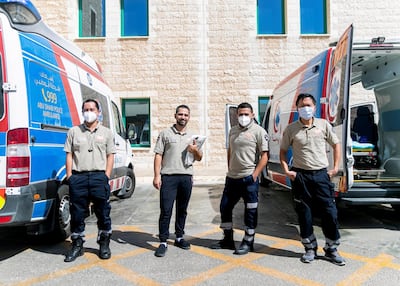In recent months, numerous friends have told me they feel fortunate to be here in the UAE during the rampages of the Covid-19 virus. We have not escaped its effect. Compared to other countries though we’ve done pretty well.
While following the progress of the pandemic here, I have also kept an eye on the situation in the UK, my country of origin, and in the British Channel Island of Jersey, my other home.
The three countries are very different in terms of size. The UK population is around 68 million and the UAE is somewhere around 9.8 million, while Jersey has a mere 105,000 inhabitants. Government systems differ, too. In the UK, the administrations in Scotland, Wales and Northern Ireland have major roles to play in terms of introducing Covid-related restrictions, with the government in London being in full control only in England. Here in the UAE, many decisions are taken by the federal government but others can be introduced at an emirate level. In Jersey, roughly the size of Abu Dhabi island, all decisions are taken by the government.
Despite those differences, however, some lessons can be drawn from comparing how each country has fared.
Statistics from earlier this week show that in the UK, the number of cases recorded represents around 3.4 per cent of the population, with deaths, around 70,000, representing just over 0.1 per cent. In the UAE, case numbers are much lower, at around 2.06 per cent of the population, while deaths, at around 660, represent 0.007 per cent. In Jersey, overall cases are running at around 2.34 per cent, with 41 deaths representing 0.03 per cent of the population.
Direct comparisons are difficult. Each country has flows of tourists and other visitors, and in the UAE and Jersey, tests prior to, or on, arrival, have generally been mandatory. In Jersey, over half of the tests since July have been for incoming visitors. In the UAE, frequent re-testing takes place.
Total test numbers, though, are a reasonable way of assessing the efficiency of government responses. In both the UAE and Jersey, total test numbers are more than twice the estimated population. In Britain, test numbers are equivalent to only around 77 per cent of the total population. On this basis, the UAE and Jersey have performed better than the UK.
Another way of assessing performance is by looking at the measures to limit the spread of the disease. In the UK, restrictions were introduced slowly but have recently been rapidly ramped up. Much of the country is now under a serious lockdown. Jersey too, after a light touch start, has now also tightened up dramatically.
The UAE, in contrast, entered into the pandemic with a tight lockdown, which has been gradually eased. Life is now relatively normal, even if regular re-testing is required. As we enter into the New Year, there is a marked difference between the UAE and both the UK and Jersey.
There are numerous reasons for that. Differing levels of testing, the scale, in percentage terms, of incoming visitors and the ability or desire of each country to limit travel have all played their part.
Perhaps, though, two of the key factors have been the ability of the respective governments to deliver clear, consistent messaging about the necessary precautions and, in tandem, the response of the populations.
Here in the UAE, messaging about masks and about social distancing has been firm from the beginning. In Abu Dhabi, at least, if not throughout the emirates, it is now rare to see people without a mask. That is not universally the case in the UK.
In the UK, on the other hand, messaging has frequently changed, often with ‘advice’ being given, rather than strict rules being introduced. Pictures of crowds ignoring social distancing advice and publicity about government officials breaking rules they themselves helped to set have contributed to a situation in which those rules are blatantly flouted.
In Jersey, the government approach has often been reactive, rather than proactive. Mandatory wearing of masks has only recently been introduced, along with the lockdown. Criticism of that approach from both public and politicians was a key driver of a recent, albeit unsuccessful, attempt in Jersey’s Parliament to pass a Vote of No Confidence in the island’s Chief Minister.
In terms of the science, there has probably not been an enormous difference in the record of the three countries, although the UAE, and, more recently, Jersey, have clearly out-performed the UK in terms of testing.
What conclusion can be drawn, therefore, from the fact that both the UK and Jersey are now under lockdowns, while life in the Emirates, for most people, is relatively normal? That, I would argue, is because of the government’s rapid and firm response to the pandemic when it arrived and the continued, consistent advice and implementation of clear regulations about social distancing.
Like my friends, I too feel fortunate to have been here as the Covid-19 pandemic, hopefully, runs its course in the new year.
Peter Hellyer is a UAE cultural historian and columnist for The National




